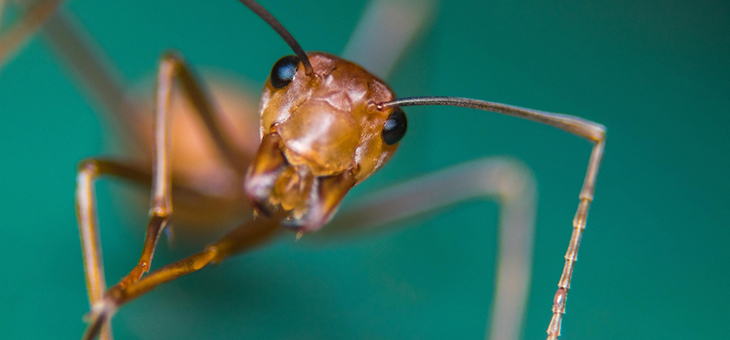Before long, summer will be upon us and the warm weather-loving insects we have (not) missed, will again come buzzing and crawling about.
To prepare for the onslaught, consider these myths about pests and how to control them:
Spray away
Spraying insecticide profusely around a room or outdoors is not more effective than targeted application.
In fact, no matter how ‘safe’ insecticides claim to be, they are actually toxic for some people, especially young children.
Spraying when there is a breeze increases the likelihood that someone will inadvertently inhale the mist that drifts towards them. Using pesticides around food and drinks or on surfaces can also cause the product to be absorbed either orally or through the skin.
The Federal Department of Health has four classifications that describe the level of toxicity in products designed to kill pests:
- unscheduled: These are very low in toxicity and are unlikely to cause harm to humans. Most aerosol cans fall within this area
- S5 pesticides: These have low toxicity but require caution in handling, use and storage
- S6 pesticides: These have moderate toxicity and also require caution in use, handling and storage
- S7 pesticides: These have high to very high toxicity. These pesticides are extremely hazardous to health even at low exposures. They require special handling and cannot be sold to the general public.
Before you buy insecticides, read the labelling to ensure you have the safest product available and always use in accordance with the instructions.
Alternatively, you may be able to create your own repellent using lavender, essential oils, vinegar or even a glass of wine.
Zippity zappers
Plug-in ultrasonic pest repellents appear to be de rigueur in outdoor entertainment areas, but the jury is still out on whether they are effective.
They are supposed to work on the premise that they emit a high-frequency noise inaudible to humans, but which is unpleasant for insects, forcing them away from the area.
However, there seems to be consensus that there is no scientific evidence that the devices do what they claim to do.
And if you are using a bug-catching device to trap mosquitoes, you are wasting your time. These blood-sucking insects are not attracted to the blue light emitted by the devices – they are drawn to you … for a feed.
Another myth about mosquitoes is that they are only active as the sun is going down. Mosquitoes will fly around at all hours and in fact some of the most dangerous ones, those that spread the Zika virus, for instance, only bite during the day.
Cocky cockroaches
It is a total fabrication that cockroaches, or rodents for that matter, will not move into a home which is sparkling clean and has the tidiest of gardens.
These intruders are not attracted by grubbiness, they are attracted by a food source. And every household has a ready food source for these pests – it’s called the garbage bin.
Cockroaches are canny creatures and will only emerge when hungry. Chances are your home is harbouring them without you realising because they prefer to stay out of sight.
Getting antsy
Of all the home remedies used to repel and kill insects, it is the tiny ant which has sparked the most creative thinking. Sadly, almost nothing you can concoct will rid your house of these creepy crawlies.
Among the myths that have been busted are that ants can be killed with cinnamon, vinegar or uncooked grains. Drawing a line in chalk may temporarily interrupt their trail, but it won’t be long before the ants find another way to get indoors.
Some people erroneously believe that using poison or pouring boiling water over the ant trail will destroy the colony. Unfortunately, the ants you see are just a fraction of the number that safely stay closer to the nest.
As soon as one platoon succumbs to your eradication, another one will be forming to take its place and so it will go on, and on.
It is worth investing in a professional pest exterminator if your insect problem is getting out of hand. Ring around and get a few quotes and ask questions before you settle on one.
Do you have any foolproof ways of getting rid of insects without using chemicals? Can you remember any weird ways of controlling pests that your parents or grandparents may have used?
Related articles:
War in the backyard
Which bug bit you?
Should you worry about Zika?

